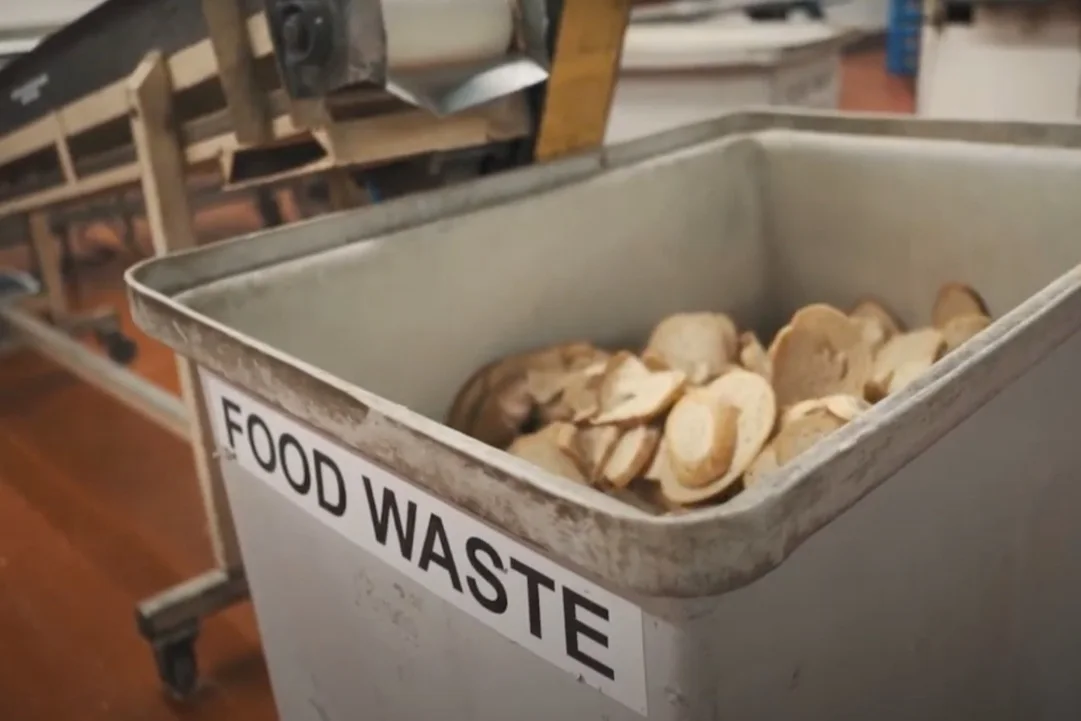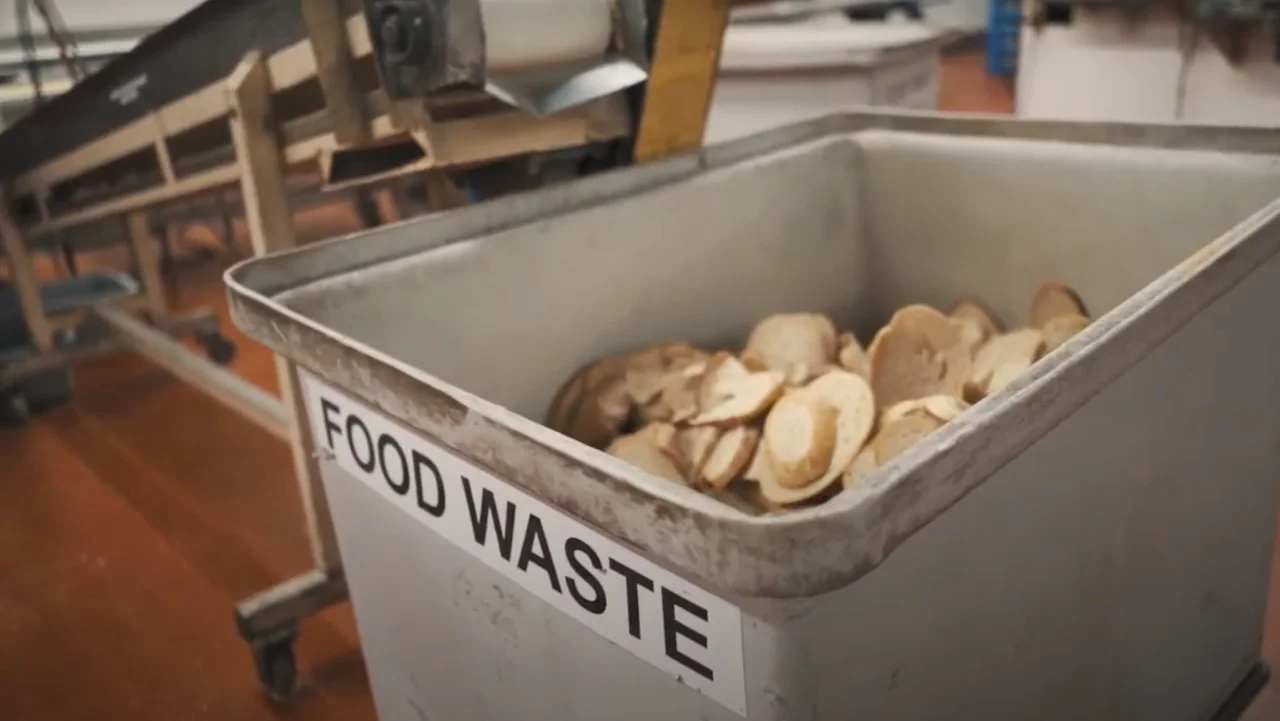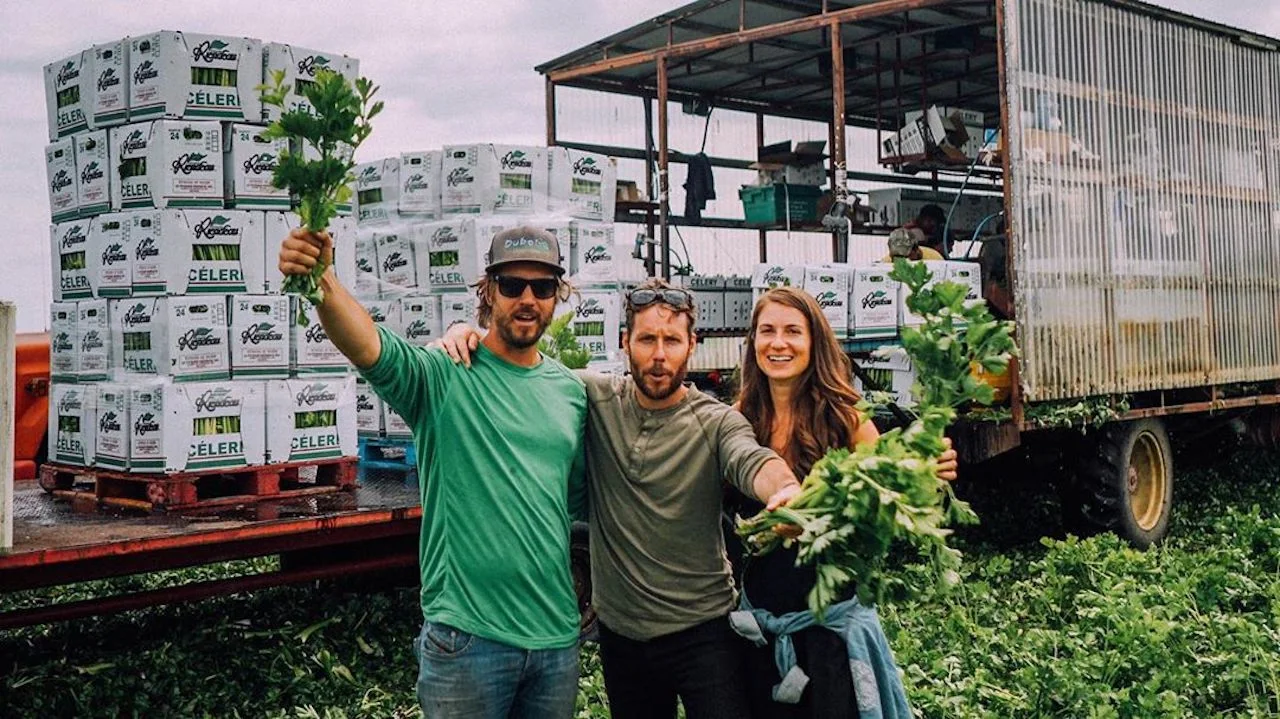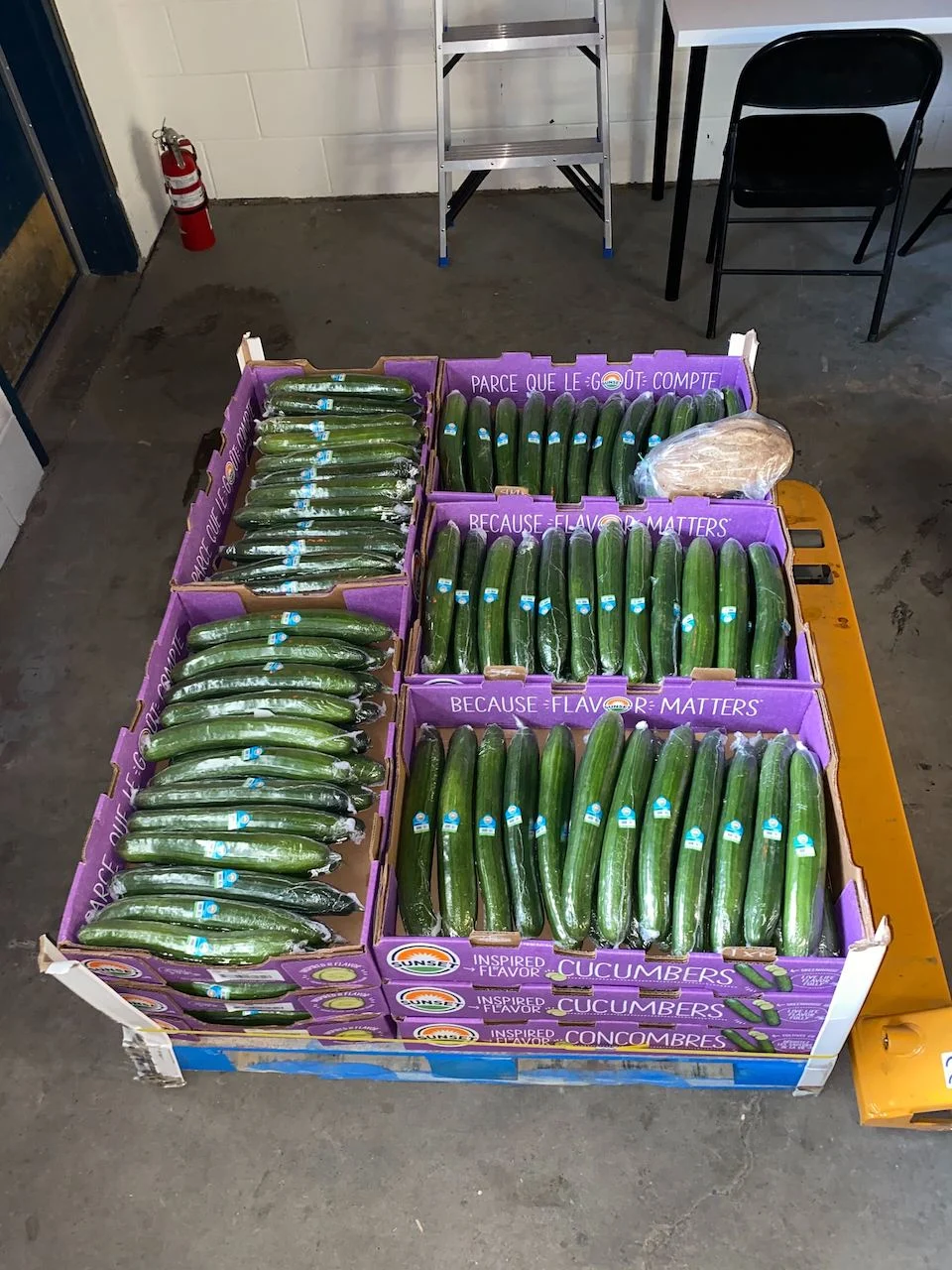
Upcycling reduces Canada's waste by giving leftovers a second life
Canadian organizations such as Anew and LOOP Mission are breathing new life into discarded products through upcycling, helping to alleviate the country's vast amount of food waste.
Canada has a bit of a problem with waste, particularly with food.
According to a 2021 United Nations Environment Programme report, the average Canadian wastes 79 kilograms of household food, per capita, per year, totalling 2.94 million metric tonnes annually. In 2016, food accounted for 23 per cent of Canada's residual municipal solid waste that ended up in landfills.
SEE ALSO: How a Canadian company diverted millions of plastic bottles
There are a number of options to combat the problem including upcycling, a concept that involves reusing discarded objects or material in a new form to make a product of higher quality or value than the original. The concept has been utilized for everything from clothing and furniture to food and books.
Many groups in Canada are devoted to this process including Anew -- a member-driven, food upcycling organization that connects food and drink experts to create new marketable products from rescued food donations. There is also LOOP Mission, a circular economy project that aims to reduce food waste by repurposing the outcasts of the food industry.

(LOOP Mission)
LOOP MISSION UNDERTAKING WASTE ON MANY LEVELS
LOOP Mission was founded more than five years ago. Since then, it has rescued more than 14,000 tonnes of fruits and vegetables, saved more than 868 million litres of water and redeemed more than 1.2 million slices of bread. The company's efforts have averted more than 11,000 tonnes of greenhouse gas emissions.
In addition to making cold-pressed juices, the organization brews beers with day-old bread, creates distilled gin using potato cuttings from a potato chip factory and fabricates handcrafted soaps made with rejected cooking oil, among other products. It calls itself a "food waste-fighting powerhouse."
"There's a lot of great mission-driven companies out there. But we are the first of its kind. We are the only one who does what we do on this level. We're not just creating one product out of food waste or overstock from our local grocery store," Pascale Larouche, public relations lead for LOOP Mission, told The Weather Network in a 2021 interview.

(LOOP Mission)
Larouche noted LOOP Mission's fruits and vegetables are 85 per cent overstock while the remaining percentage will have just a small abnormality that prevents them from hitting the grocery store shelves, but are still edible.
"You will see there are some fruits that are always in our juices, smoothies or beer because we have a ton of [them]. The industry produces more waste for some of the fruits and vegetables, so that's what we use the most," she said.
WATCH: Black plastic is a recycling nightmare. Here's why
Adding to the ever-growing pile of Canada's waste problem is that a staggering 58 per cent of all food produced in Canada - 35.5 million tonnes - is lost or wasted, according to a 2019 report from Second Harvest.
Larouche attributes the excess to regular availability of produce, no matter what the growing season is, and the "fast-paced" lifestyle many people have that leads to food expiring in the fridge because it is forgotten about or there is too much of it.
"We kind of have this mentality of stacking up [food] instead of using everyday what's available in our fridge and going to the store more," said Larouche. "It's people not planning more, it's people having crazy work schedules and life in general."

(LOOP Mission)
If reusing rejected food wasn't enough, LOOP Mission also supplies its own byproduct — high-fibre pulp — to a company that converts it into dog treats.
"We're always making sure that everything we produce, if we do produce waste, we use it again. So everything gets a second life, everything is upcycled. And it's giving value back to those rejected or those misfits of the industry," said Larouche.
ANEW CONNECTS COMPANIES
Anew is a recent project started by the Leftovers Foundation, a tech-enabled food rescue charity. The new venture is dedicated to using donation-based food that is destined for the trash to create a new product.
Shelby Montgomery, vice-president of programs for Leftovers Foundation, called the latter the "connectors between excess food" in a 2021 interview with The Weather Network. From April 2020 to May 2021, it upcycled more than 1,700 pounds of food.

(1961 Popcorn Co.)
"There's so much food in Canada that ends up in the landfill. And the real shame about it is that so much of it is still good. It's still in good shape, it's still good quality. It's beyond edible, it's still fresh," said Montgomery.
She said much of the food waste Anew diverts is a distribution issue or results from a lack of shelf space. "So this really captures a lot of that food that is avoidable food waste," said Montgomery.
When it comes to upcycling, Anew isn't just reusing a product — "we're taking something that would end up in the trash and we're turning it into something even better," the vice-president of programs for Leftovers Foundation added.
WATCH: Unsold produce is getting a second life as a nutritious supplement
Anew is completely donation-based, so for the company it is about artisans who can respond in a timely fashion once products are available because it is rescuing large quantities of food, Montgomery explained.
"Very quickly, we want to turn them into a new product before they go bad, before they end up in the compost. We don't have that consistent source of food waste coming into our organization. So our new partners are very innovative, and they're very fast moving," said Montgomery.

Rescued cucumbers. (Anew)
The organization connects mostly with grocery stores, bakeries and restaurants, with just a few corporate partners, Montgomery said. Anew has already received "great feedback from the public [and] really great feedback from our partners" since its initiation in 2020.
"They really enjoyed being members of Anew Upcycling. Folks are really interested in making more environmentally conscious choices. And I think the more products that enter the market with an environmental impact or with environmental consciousness, you know, that really pushes the whole market forward," said Montgomery.
More information on Anew and its services can be found here.
Thumbnail courtesy of LOOP Mission.
Follow Nathan Howes on Twitter.










